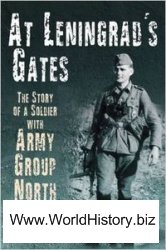In this book, which is aimed primarily at students of the ancient world and at the general reader, I have tried to explain the nature of warfare and its impact on the life and society of the Roman empire from the reign of Augustus up to the military reorganization carried out by Diocletian. Conveniently for the historian, during this period both the system of government and the structure of the army remained relatively unchanged. The army was a professional force permanently stationed in those provinces the Romans considered crucial for their military, economic and political interests, and the soldiers in many ways came to be closely linked with the society in which they lived and operated. Therefore the nature of the military community in its day-to-day existence, and not just in time of war, forms an essential part of the book. Many provincial communities heard the tramp of the legionaries’ feet, whether or not there was any actual fighting. Each chapter is constructed round a general theme: Why did wars start? Who served in the army and why did they fight for Rome? What was battle like in the Roman world? How did war and the presence of the army affect society, especially in the provinces? How was war manipulated to suit imperial politics? How was the emperor’s military role presented and public opinion managed?
In preparing the book I derived many useful ideas from a broadly based colloquium on Warfare and Society organized by Kurt Raaflaub and Nathan Rosenstein in June 1996 at the Center for Hellenic Studies in Washington, DC. I owe an especial debt to several colleagues. Not for the first time, Professor David Buck offered advice, encouragement and detailed suggestions. Dr John Curran read the entire text, and as usual provided a stimulating and civilized environment for discussion. Frederick Williams, Professor of Greek at the Queen’s University of Belfast, read the proofs with his customary skill and erudition. I should also like to express my appreciation of the professional and friendly support from the editorial staff at Routledge.
Finally I dedicate the book to my wife Karen, whose love and support have made modern university life tolerable.




 World History
World History









